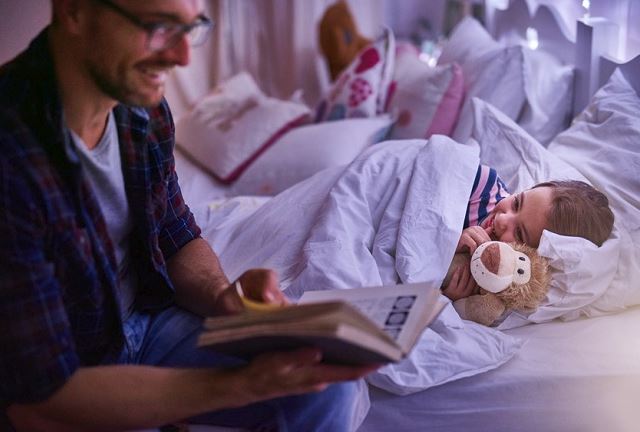Class divides and racial divides are passé. Now, there’s bedtime reading inequality.
In a recent article for the Australian Broadcasting Corporation, journalist Joe Gelonesi asked whether loving families are an “unfair advantage.” The piece asked whether we should level the academic playing field among all children, by having all parents stop bedtime reading in order to adjust for those parents who can’t read to their kids or who choose not to.
In a story that seemed straight out of a sick comedy—or Fahrenheit 451—British academic Adam Swift told the inquiring journalist: “Evidence shows that the difference between those who get bedtime stories and those who don’t—the difference in their life chances—is bigger than the difference between those who get elite private schooling and those that don’t.”
Gelonesi then made the most extraordinary stretch of all then, suggesting that the good experienced by some children must be sacrificed for the baseline experience of all children: “This devilish twist of evidence surely leads to a further conclusion that perhaps—in the interests of leveling the playing field—bedtime stories should also be restricted,” because they form a “palpable fault line between families.” Think of this policy as Every Child Left Behind.
In the end, Swift is willing to permit the stories, but he thinks parents should at least sometimes be guiltily aware of what they are conferring: “I don’t think parents reading their children bedtime stories should constantly have in their minds the way that they are unfairly disadvantaging other people’s children, but I think they should have that thought occasionally.”
Swift and Gelonesi are not wrong that a parental commitment to educating a child at home is a gift that can alter his life. The solution, though, is to encourage all parents by every means possible to choose to emulate this model.
A father I met at the beach recently told me that his daughter had just wrapped up a great year at school. “She had to go to summer school last summer,” he confessed. “This summer her teacher said she doesn’t need to go though,” he said, relaying his obvious pride over the end result. “But we are still working every afternoon this summer, writing and reading.”
His drive to enrich his daughter’s learning experience, to offer her time—together—to read and write and learn is the same thing that drives all parents who read to their children: a commitment to lifting the individual. I don’t know his socioeconomic status, his zip code, or his profession—I just know he cares enough to do the hard work required to lift his daughter up. Rather than suggest that some parents give up reading to their kids in order to even things out, we should do everything we can to make sure every child has this opportunity.
Reading with your child, though, is not just for the child. Fyodor Dostoyevsky said, “The soul is healed by being with children.” Though he wasn’t talking about bedtime specifically, reading he may as well have. The hours spent tucked tightly together along the narrow rails of a twin-size bed, reading from the pages of Jumanji, Where the Wild Things Are, or Treasure Island, have healed the weathered souls of many a parent at the end of a long dark, frustrating day, when humanity disappoints or the office demands too much.
Do yourself and your kids a favor, once the stars are out tonight—and every night thereafter—drop everything else and read until one of you is fast asleep.
—
This article was reprinted by permission of Acculturated.
















Leave a Comment
Your email address will not be published. Required fields are marked with *